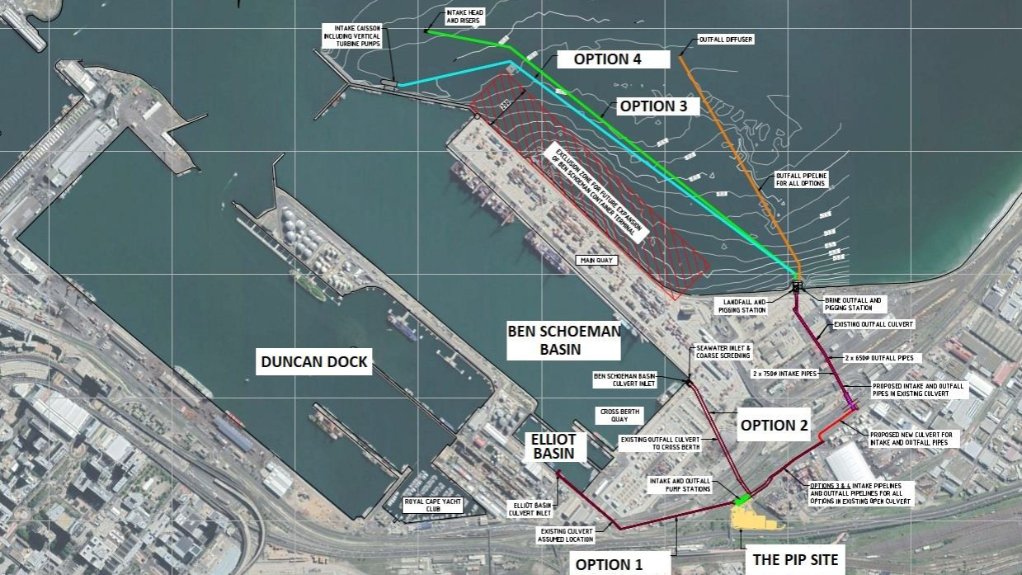The City of Cape Town (CoCT) has started the feasibility study on the proposed Paarden Island desalination plant, says CoCT Water and Sanitation MMC Zahid Badroodien.
The study is being undertaken by a “suitably qualified transaction advisory team appointed through National Treasury’s Government Technical Advisory Centre (GTAC)”.
The study will investigate suitable options for the construction, financing and operation of the proposed desalination facility.
After the feasibility study has been completed, a decision will be made on the most suitable way to implement and operate this facility, says Badroodien.
The 22 000 m2 sea-water, reverse-osmosis operation will take water from the ocean for use by Cape Town households.
The estimated capital cost of the plant is roughly R5-billion (excluding VAT and escalation, as at June, 2023, as base date).
The desalination plant will be funded through the water tariff, says Badroodien.
The facility is expected to produce 50-million to 70-million litres of water a day, with 2030 targeted as the starting date.
Faced with climate change, unpredictable rainfall and a rapidly growing population, CoCT says the desalination plant is key to the city’s New Water Programme, as well as its Water Strategy, which aim to diversify the city’s drinking water supply resources.
Overall, the CoCT plans to add an extra 300-million litres of water a day from various sources, including desalination, water reuse, groundwater and the clearing of alien invasive species.
An independent advisory panel of 12 international and local desalination experts, consisting of scientists, engineers, public health and social science practitioners, has been established to guide Cape Town in making informed decisions regarding the establishment of a permanent seawater desalination plant, says Badroodien.
The GTAC has also appointed a transaction adviser on behalf of the city to investigate the most appropriate approach to deliver the desalination project, which may include a public–private partnership.
“We are committed to advancing our water security by developing a permanent desalination plant, among all other interventions which comprise the New Water Programme,” says Badroodien.
“By leveraging on a diverse pool of expertise and exploring all feasible options for implementation, we are confident that Cape Town will establish quality technologies in water treatment from diverse sources, which meet safety, technical and regulatory standards.”
EMAIL THIS ARTICLE SAVE THIS ARTICLE ARTICLE ENQUIRY
To subscribe email subscriptions@creamermedia.co.za or click here
To advertise email advertising@creamermedia.co.za or click here











